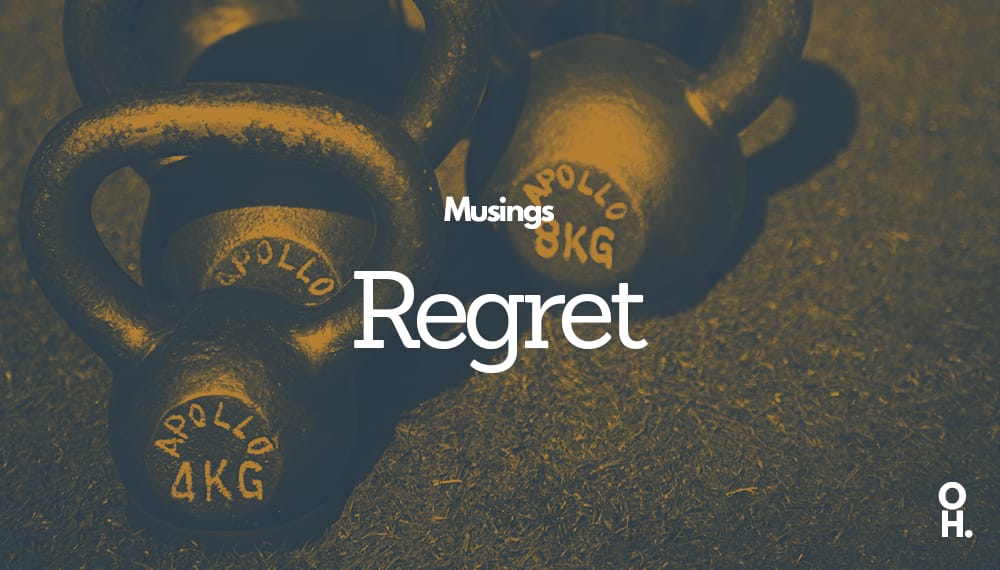“Do you miss it?”
“Are you happy?”
I was in the fifth grade when I decided that I wanted to become a lawyer. Why? I have no clue. All I knew was that I was going to high school, then college, then law school, then work as a lawyer. At that point, I didn’t even know what a lawyer did. My only image of one was a person banging a gavel while shouting “Order!” a few times. This was year 2007.
A lot of indecision and going back and forth in my head went down during the 10-year span after 2007:
For the years that followed, there was whole lot of training to fit the part of a future attorney at law. Writing classes on the weekends, public speaking sessions after class, student council; it was a pre-law school bootcamp that culminated in taking up a legal management course in 2013.
College happened and I was moving up, on my way to the next step: law school. I finally find out what a lawyer actually does and by the time law school applications were out, I was already enrolled in White Elephant, a review center for the law aptitude examinations. But in 2016, just a few months before graduation, I go on a silent retreat. Two days later, I was finally allowed to speak again and my first words were that I no longer wanted to go to law school.
But I took the tests anyway; I had already paid for them. And I passed. Now, a lot of people were happy for me and don’t get me wrong, I was extremely grateful. However, one part of me was more in touched with the turth. It was voice in my head, a whisper, “Oh no.” In that moment, I knew I had to reconsider my prior decision to ditch law school. And eventually, it wasn’t the “sayang eh” or the “a lot of people would do anything to be in your situation” that made me choose to go. Rather, it was the “you never know ’til you’re there.” That was my brother speaking.
In some strange way I enjoyed the law school grind (sort of), but I couldn’t see myself doing this four years later. So on the 11th hour of 2017, just two days before new years, I decide to leave the college of law for good.
And now I’m here. I still get a little anxious when friends from school or members of the extended family would ask me what I’m up to nowadays, because I couldn’t come up with a specific answer like a position in a company or a year in graduate school. And then comes the rush of the same questions. Do I miss it? Am I happy?
What I’ve come to realize over the last 10 years of “big” decisions is that the bolder the decision and the bigger the stakes, the heavier or lighter the regret or the relief. Sounds logical, I thought. The bigger the object thrown, the bigger the force of impact. But today, I no longer think this has to be the case every single time.
In the late 1500s, it was said that Galileo conducted an experiment to prove Aristotle and the prevailing church doctrine wrong. Aristotle had taught that objects fall at speeds directly proportional to their mass, meaning heavy objects would fall faster than lighter ones. Most historians doubt this actually happened but Galileo’s experiment was simple. He climbed up the Leaning Tower of Pisa and dropped two lead spheres, one heavier than the other. His prediction was that the mass of the object was independent of how fast it accelerated as it fell. True enough, both spheres reached the ground at the same time. Galileo was right.
I would like to think regret works the same way. The weight of regret is independent of the weight of our past choices. And everyday, we drop off our own lead spheres from our own leaning towers. Some spheres are small, while others are large. And on December 29, 2017, I dropped a huge one off. The question, however, is not “Do you regret leaving?” but rather, “Will you regret leaving?” This is because at the time of the decision, the answer is always “I don’t know.” How could I know? The weight of regret is independent of the weight of our past choices.
Regret, I’ve learned, does not begin with a decision made in the past. Although it happens only when we look at the past, the feeling of sadness and disappointment happens in the present. Regret is looking at our current situation and not liking what we see, and then tracing it back to a past event or choice. It is a present phenomenon that happens at the moment of remembering, otherwise we would not have made the decision knowing full well how it will affect us today.
So if we were strong enough to carry our lead spheres all the way up our leaning towers in the past, then we’re strong enough to catch them as they fall back to us in the present. The question is, are we going to catch our spheres or do we simply let them hit us? I guess this is the difference between acceptance and regret.
The trick is to look at regret simply as a non-acceptance of our lack of control over the world. The more we accept, the less we regret. Whether we like it or not, all our decisions, big and small, are going to come for us in the future, but in accepting that they are all equal in that they are all final, they don’t have to hit us sooner or with more force than they should.
In making the big life decisions, unless one choice is inherently evil or forced upon us, there is no right or wrong, there is only what we do or do not. Whether this choice will be the right choice five or ten years from now is entirely up to us. And to be free from regret is to be fully accepting of the finality of the past. It is to say that what is today simply is, and that’s all right.
And from here we have to look forward so that the question becomes, “what can I do today so that tomorrow might be less difficult to accept?” We have to look ahead.
I find it ironic that the person who convinced me to give law school a try was the same person who gave me the courage to leave. On December 29 last year, my brother linked a Youtube video to me. It feels weird just writing that – a Youtube video gave me the guts to leave law school. But it’s true. iIt was a compilation of Elon Musk interviews, the one with him talking about starting a company as akin to “eating glass while staring into the abyss,” where he tears up at the thought of his heroes the Apollo astronauts Neil Armstrong and Gene Cernan doubting his efforts calling the loan by the US Government to SpaceX a “pledge to mediocrity,” but when asked whether he’d ever thought of calling it off after three straight failed launches, he answers, “Never. I don’t ever give up. I’d have to be dead or completely incapacitated.”
And I knew I wanted that, the feeling of wanting something so bad, of creating something I believed in so deeply despite the doubts, and the odds, and the uncertainty. I wasn’t afraid of losing sleep or of losing myself in the work as long as losing myself meant finding myself again.
Do I miss it?
Am I happy?
Will I regret it? I look back and I do not feel the weight of being lost and without direction as a result of it. Instead, I look back and I recall the lightness of letting go. I dropped a sphere from a high tower and perhaps it has not reached me yet at the bottom, but when it does, it will not be the weight of the feeling that will overcome me but, rather, the lack of weight of the lightness still.
Cover photo taken by: Justyn Warner

